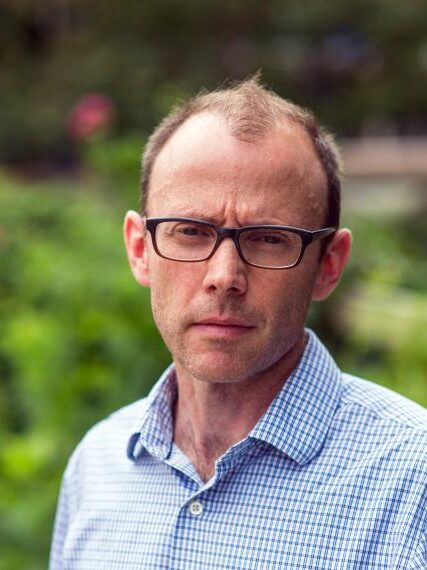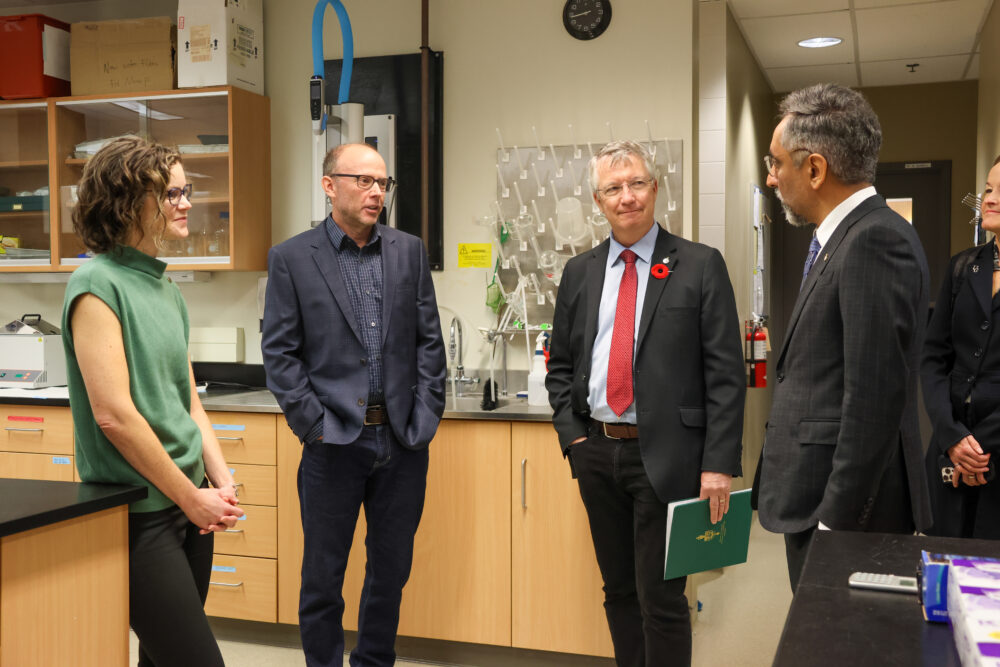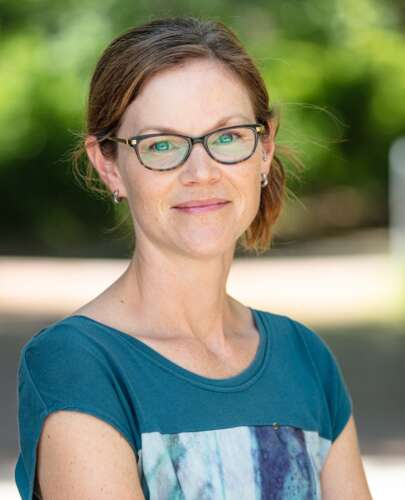University of Guelph researchers are working to protect and conserve Pacific salmon populations by studying how diluted bitumen (dilbit), a type of crude oil, affects the animal’s health and life cycle.

Dr. Sarah Alderman and Dr. Todd Gillis, professors in the Department of Integrative Biology, College of Biological Science, will receive nearly $1.5 million in federal funding over 30 months from Fisheries and Oceans Canada (DFO) under the Oceans Protection Plan program.
The funding was announced today at U of G by Member of Parliament Lloyd Longfield.
“This funding complements over a decade of funding support from DFO for this incredibly important research program,” says Dr. Shayan Sharif, acting vice-president, research and innovation. “It is also a well-deserved recognition that Drs. Alderman and Gillis have the expertise and reputation to carry out this critically relevant work. We celebrate this achievement, which will help them further our mission to improve life.”
Alderman and Gillis will build on their previous work supported by DFO that shows very small concentrations of dilbit can affect heart function, swimming performance and mortality in young salmon during early life stages in freshwater.
This new project will be the first to examine the effects of dilbit exposure on adult salmon returning to their spawning beds to reproduce. It will also look at whether oil exposure in adult salmon can affect the fitness and survival of their offspring.

Supporting Pacific salmon sustainability

Findings of this research will help inform the actions of Canadian Coast Guard in the event of an oil spill in B.C.’s Fraser River, a key salmon production area along the route of the Trans Mountain Pipeline.
“What’s unique about this approach, and what continued support from Fisheries and Oceans Canada has allowed us to do, is look at different exposure scenarios,” says Alderman. “Due to the complex life cycle of Pacific salmon, exposure could occur at different life stages, each of which makes a unique contribution to maintaining the population.”
In collaboration with Indigenous communities in B.C., as well as researchers at Simon Fraser University, the project will also include integrative biology professor Dr. Robert Hanner,
Pacific salmon are of significant cultural, ecological and economic importance to Canada, bringing in hundreds of millions of dollars in revenue per year through sport fishing, commercial harvest and tourism.
“When the sockeye salmon return in the fall, people gather to watch them in the river. It’s very significant – thousands of blood-red fish swimming up rapids and waterfalls,” says Gillis. “Pacific salmon are an important resource that needs to be protected. Expanding our knowledge on these effects will help safeguard salmon populations and the communities that rely on them.”
Longfield says, “Supporting the sustainability of Pacific salmon means supporting the continued prosperity of coastal and inland ecosystems, local cultures and economies. I look forward to following this research and watching the University of Guelph’s renowned excellence for research, innovation, and collaboration help to protect this culturally, economically, and environmentally important species.”
